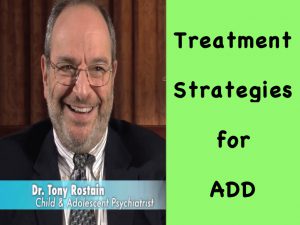You probably know by now what didn’t work before, Dr. Rostain says you need to understand why it didn’t work, there is value in the failed experiments.
Other strategies discussed are:
Not doing it all on your own
Reducing risk
Writing it Down
Dr. Anthony Rostain:
My view about adults with ADHD is that if they are coming to see us that’s already a remarkable thing, because most don’t, and I think that. So i say to them you know you’re a brave person you’ve lived your whole life with ADHD. You know some things about life that I don’t. Let me learn from you about what has worked and what hasn’t worked and then if it hasn’t worked maybe we can try other things instead, or why didn’t it work?
My view about adults with ADHD is that if they are coming to see us that’s already a remarkable thing, because most don’t, and I think that. So i say to them you know you’re a brave person you’ve lived your whole life with ADHD. You know some things about life that I don’t. Let me learn from you about what has worked and what hasn’t worked and then if it hasn’t worked maybe we can try other things instead, or why didn’t it work?
So it’s always an engaged process of questioning and of looking at what you tried, seeing if there’s a better way to do it and not trying to do it all yourself and that’s the key too you know? Like we’re a team, who else is on your team? How can we get the people around you to be more understanding if you blow it and not keep raking you over the coals.
The other thing that we’ve noticed is that with people with the impulsive type of ADHD we tend to focus a lot on risk reduction, and it’s a real risk reduction model, like okay you know that you’re going to want to go with your friends partying the night before your test when they call you and say they got tickets to see Madonna or whoever you want to see. How can we work on you saying no?
So it’s reducing the risk because we know that something’s going to come up and they’re impulsive and how do we reduce the or the risk from driving too fast or what have you.
With those who are more inattentive ADD we tend to focus a lot more with them on information, flow of information use it before you lose it, repeat it and repeat it and repeat it again, chunk it, use little aliquots of time to get the job done, don’t try and do it all in one sitting.
So we work a lot more on the cognitive style of oh ask for people to repeat you know? People are so embarrassed like they go yeah, yeah and they’re not remembering okay so write it down. We have people sitting in the office with a pad and before they leave they write, we have them keep a little notebook so that each session they can check on what they what they learned from the last time. We can go back, where did we leave things off last time? Instead of just oh you tell me what we were talking about, because really we need audit we need auditory memory aids, and the visual side is actually what we rely on if they don’t remember what they’re listening to. We use the visual system if they don’t remember what they’re seeing, we try to use an auditory like a like talking to your little memory storage device and have you use it to help you remember where you put your keys.
View related videos
View related blog posts


Leave A Comment
You must be logged in to post a comment.